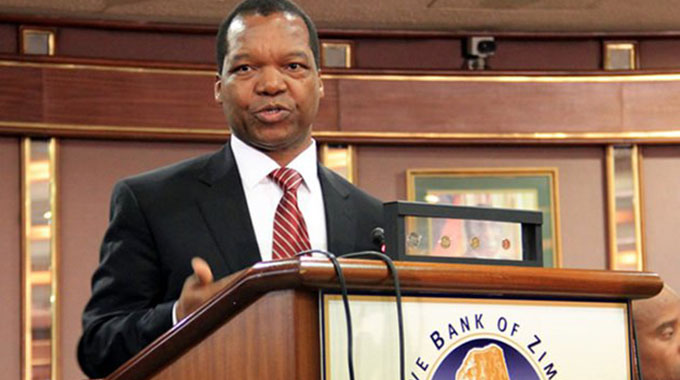RBZ applauds exchange stability

Business Reporter
THE Reserve Bank of Zimbabwe (RBZ)’s monetary policy committee (MPC) has noted with satisfaction the stability in the parallel market exchange rate since the beginning of last month.
According to the committee, the stability in the exchange rate has been anchored by tighter monetary policy measures adopted by the central bank on February 7.
The MPC also expressed concern over the increase in monthly inflation from 5,3 percent in January to 7 percent in February driven by global and administrative prices.
As such, it said focus should remain on anchoring exchange rate stability to reduce inflation and minimise the negative impact of global inflationary pressures on local prices.
This was said by RBZ Governor Dr John Mangudya in a statement yesterday following the bank’s monetary policy committee meeting held on February 25.
This exchange stability followed brief volatility, which threatened massive gains on sustained inflation decline recorded for most of last year, when inflation fell to its lowest (two digit) levels in over two years.
Most of the inflation seen in Zimbabwe over the last few years, is the result of the pass-through effect of steep parallel market exchange rates on domestic prices.
Dr Mangudya said the MPC deliberated on macroeconomic developments in the country, as well as monetary policy measures announced by the apex bank in early February.
“The committee noted that the parallel market exchange rate had stabilised since the beginning of February 2022.
“As such, the committee’s deliberations focussed on ensuring that exchange rate remained well anchored and current short term exogenous pressures from the global economy and administrative prices would not be transmitted into domestic inflation,” he said
The central bank chief said the committee raised concern over increase in broad money supply and its implications on parallel market activities and inflation.
“In this context, the committee urged the bank to continue actively monitoring the developments in broad money in order to vigilantly stem out speculative activities,” he said.
Dr Mangudya said global dynamics, including the disturbances in Ukraine, were expected to result in spill-over effects on domestic prices of goods and services.
“Such developments include increases in international prices of oil, gas, fertiliser and crude cooking oil, products of which Russia and Ukraine are the major producers.”
Further, Dr Mangudya said the committee had commended measures taken by the Government to promote wider use of the Zimbabwe dollar in transacting.
The MPC, he said, urged the bank to continue exploring measures to ensure increased appetite for local currency for both transactional and value storage purposes.
To that end, the bank said the MPC urged the bank to continue to synchronise Government payments and market liquidity positions to keep in sight of liquidity growth targets.
Dr Mangudya said in light of the global economic outlook, the committee resolved to keep the bank policy rate at 60 percent and medium term bank accommodation facility interest rate at 40 percent.
The MPC also recommended that statutory requirements for call or demand deposits remain at 10 and 2,5 percent for savings and time deposits, respectively.
The reserve money target, Dr Mangudya said, would also be maintained at 7,5 percent for the first and second quarters of 2022 in line with the MPC’s recommendation.
Further, the MPC’s urged the RBZ to further liberalise the foreign exchange market by allowing commercial banks to process bona fide payments below US$1 000 in augments transactions by bureaux de change.











Comments